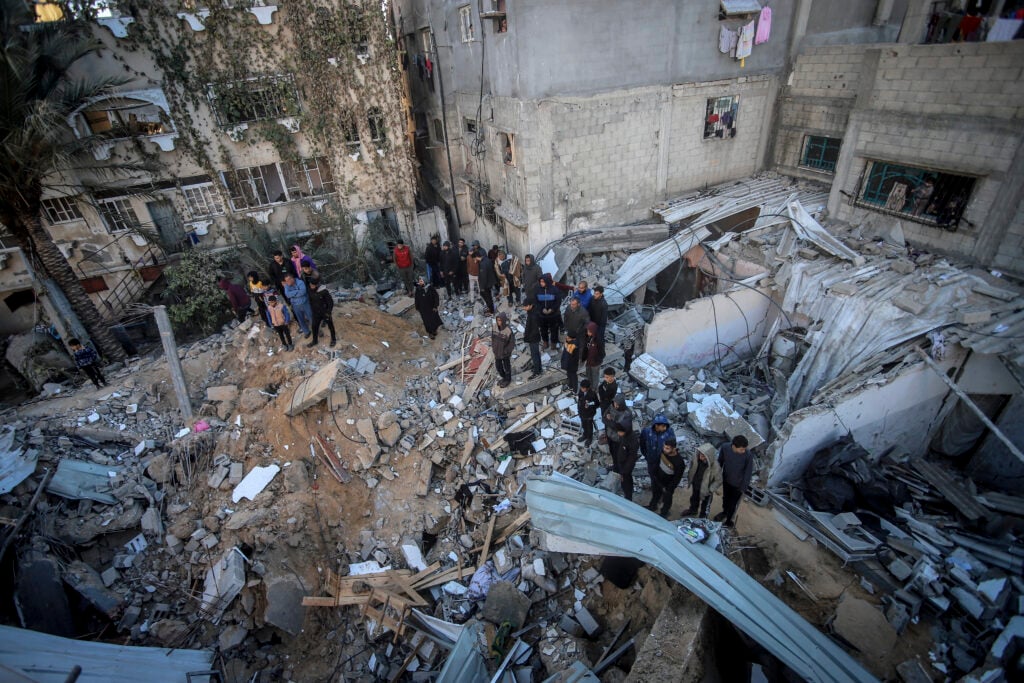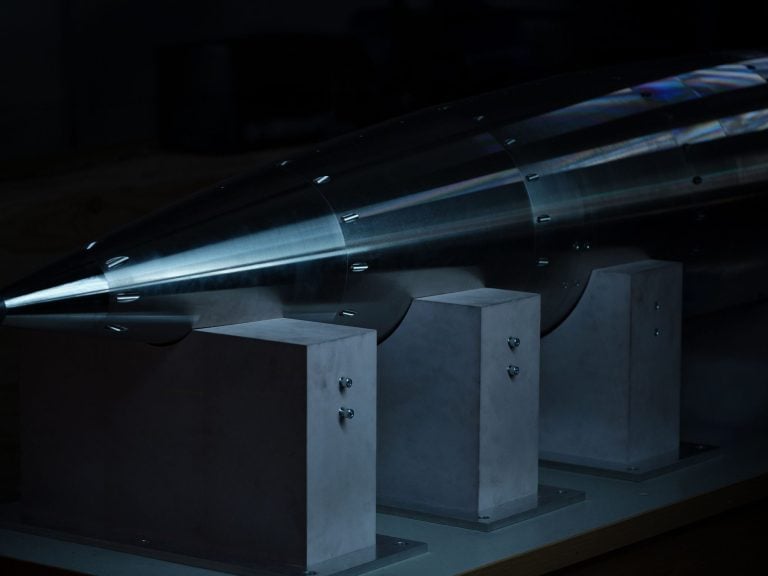Rights groups have intensified their calls for a halt to Britain’s supply of fighter jet parts to Israel amid ongoing hostilities in Gaza, as a legal challenge against the UK government unfolds in court. The Palestinian rights organization Al-Haq, supported by prominent advocacy groups such as Amnesty International, Human Rights Watch, and Oxfam, is demanding a court order to cease exports of UK-made components for Lockheed Martin F-35 fighter jets.
Protests occurred outside the High Court in London, where approximately 50 demonstrators waved Palestinian flags and displayed placards bearing messages like “Stop Arming Israel: Stop the genocide.” Inside the courtroom, Al-Haq lawyer Raza Husain articulated the urgency of the case, emphasizing the severe humanitarian crisis affecting Gaza.
Husain argued that the UK government’s trade department had unlawfully permitted the export of F-35 parts, fully aware of the “clear risk” that these components could be utilized by Israel to perpetrate violations of international law. Despite Israel’s repeated denials of genocide, the conversation around its military actions remains charged.
Advocacy groups highlight that several critical components of the F-35, including the refueling probe, laser targeting system, and ejector seat, are manufactured in the UK. Legal representatives from Al-Haq asserted that the aircraft’s operations are contingent upon a consistent supply of these components, stressing that the British government plays a pivotal role in sustaining these military capabilities.
The UK defense ministry has previously cautioned that suspending licenses for F-35 exports would compromise US confidence in the UK and NATO. In legal submissions, government representatives have maintained that their actions align with international law mandates.
The ongoing four-day hearing represents the latest chapter in a protracted legal fight. Lawyers from the Global Action Legal Network (GLAN) initiated the case shortly after heightened violence in the region, particularly following the attack on October 7, 2023, by Hamas militants. Subsequent decisions by the UK government to continue arms sales were made in late 2023 and repeated into 2024, despite a partial suspension of around 30 out of 350 export licenses deemed potentially linked to human rights violations in Gaza.
Although this suspension was a step taken by the new Labour government, it notably excluded components for the F-35 jets, which GLAN has criticized as a significant “loophole” that permits continued arming of Israel via a global supply chain network.
GLAN’s Charlotte Andrews-Briscoe remarked that the UK government has strayed from its own legal obligations in a bid to maintain arms sales, asserting that F-35s have been instrumental in military actions resulting in civilian casualties in Gaza.
The death toll in the aftermath of the Hamas attack has been reported at 1,218, predominantly among civilians. In response, Israel’s military operations in Gaza have led to a staggering death toll exceeding 52,908, according to figures provided by the Hamas-run health ministry, which the United Nations considers reliable.
Amnesty International UK’s chief executive, Sacha Deshmukh, underscored the UK’s legal responsibility under the Genocide Convention to act against genocide, highlighting the government’s continued authorization of military equipment exports to Israel as a profound failure to meet those obligations.







